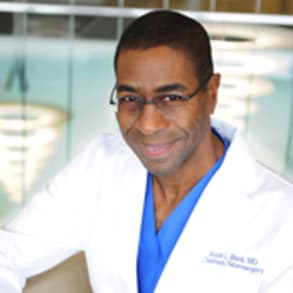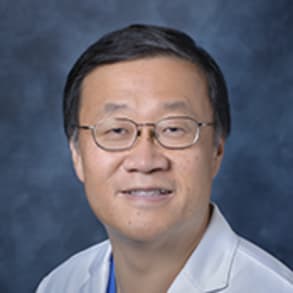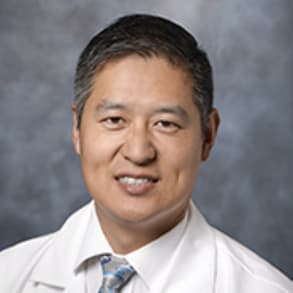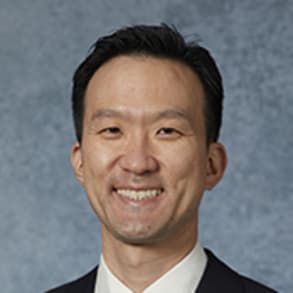There’s a reason people across the country turn to Cedars-Sinai for exceptional acoustic neuroma care. Ranked #1 in California and #2 of all hospitals in the country by U.S. News & World Report, we give acoustic neuroma patients access to an unrivaled combination of top-tier talent, compassionate care and measurable results.
The Acoustic Neuroma and Lateral Skull Base Tumor Program at Cedars-Sinai delivers customized care and excellent outcomes for complex tumors many other centers are unable to treat. Our patients and their loved ones rely on us for personalized acoustic neuroma treatments that improve—and save—lives.
To refer a patient to an acoustic neuroma expert at Cedars-Sinai, call (424) 314-0628 or email acousticneuroma@cshs.org .
The reason I decided to build the acoustic neuroma program is the fact that acoustic neuroma I believe is probably one of the most challenging uh tumors, most challenging diagnosis that we face in in neurosurgery. So this is a tumor and a group of patients that really requires what we call a multidisciplinary approach. You need a team of experts to just focus on this type of tumor. At Cedar Sinai, we are uh pushing the envelope to improve care for patients with acoustic neuroma. We are studying the stem cells that are derived from acoustic neuroma to identify the cells that both initiate and propagate these tumors to uh develop new therapies and to improve therapies that are already present. We have facial nerve specialists, vestibular specialists, uh physical therapy, um audiologists for specialized testing and of course neurosurgery as well. And so having all of those pieces to the center makes it uh both uh collaborative and a comprehensive care for patients. As a neurotologist, I know that having a close relation with the neurosurgery department is paramount the success of school based surgery over the years of being here at Cedars. I'm proud to have worked closely with the neurosurgeons here for many complex skull based tumors without that positive relation, the communication and planning that's critical to success wouldn't have been possible. So V N G and A B R are just some of the many steps that Cedar Sinai takes to ensure a successful surgery. Vimy, which is also known as V N G. Looks at a patient's vestibular system which houses their balance mechanism. The auditory brain stem response testing also known as the A B R tells us how well the inner ear and the brain pathways for hearing are functioning. The role of physician specializing in vestibular disorders brings to the team is an expertise that can be very useful particularly after surgery. There are not many acoustic neuroma centers that have a specific dedicated vestibular specialist. While on the team, I can make sure that your recovery goes as smoothly as possible. And if there are any bumps in the road, I can be there to assist. As a patient navigator, I understand how overwhelming and complex the health care system can be, especially for patients who are already dealing with health concerns. My role is to assist and guide patients through this journey and provide the support and resources that they need to navigate the system with ease. I work closely with the different departments and scheduling teams to arrange appointments that fit the patients need and schedules ensuring that they receive the care they require in a timely manner. Uh So thankfully, um after a surgery, facial weakness or facial paralysis is actually pretty uncommon. Um however, it does sometimes occur in patients just to due to swelling on the nerve after the surgery. Uh And thankfully, you know, in, in those cases where there is weakness, uh it is usually temporary and there are many different uh procedures that we can do to kind of help to assist with that recovery. The typical time frame for recovery after surgery um is you would work in the hospital for a couple of days, uh working with a therapist to return to a home activities. Uh and then you'll be referred out to myself at an outpatient facility to work with a vestibular therapist on exercises to help uh improve the strength of your vestibular system. But really 4 to 6 weeks, patients should be feeling pretty much back to normal.
Related Presenters





